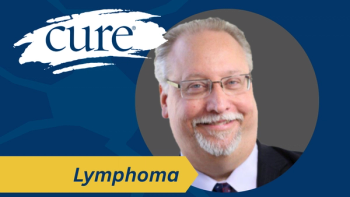
Novel Agents for R/R Follicular Lymphoma Management
Ajay Gopal, MD: I want to emphasize that things are evolving rapidly, and this is where it's important to, in real time, meet with someone, consult with someone who is an expert in the area. But as of now, in terms of approved options, there are standard chemotherapy-type options that are approved, drugs like bendamustine or other chemotherapies, if someone hasn’t had those therapies before. There are monoclonal antibodies like rituximab or obinutuzumab.
And particularly if folks have had long remissions off these treatments, they can be very effective again. There are some more novel options for first relapse, and this includes drug called lenalidomide, which is a pill therapy, and it's often given with rituximab, which is IV [intravenous]. And there was recently a study for folks who had had primarily one prior therapy and had rituximab that worked, comparing this combination to just rituximab, and it appeared to be superior in terms of lengthening the remission.
This is a relatively gentle therapy. I don't want to minimize it, everything has side effects and some folks have more than others. But that's a relatively new approval in this space for folks who have had one prior therapy. As we move down the list in terms of options, there are other classes of drugs that are novel agents. There is a whole class of drugs called the PI3 [phosphatidylinositol-3] kinase inhibitors, and there are three that are approved.
The first one approved is a drug called idelalisib, and this is approved for after two prior therapies for follicular lymphoma. This is also a pill, and everything has unique side effects and efficacy profiles. The initial study was in a tough situation of folks where both chemotherapy and rituximab had not worked in terms of garnering approval for this treatment. You will still have to be monitored closely by your physician, and side effects can be diarrhea, rash, rarely some lung issues.
There have been two other approvals since that time in this class of drug for folks who have had two prior treatments. One is another pill called duvelisib, which is quite similar to idelalisib, similar side effect profile, similar approval. And then there's an IV version called copanlisib, which has a little bit different side effect profile, a little less of the diarrhea issue, a little more high blood pressure and high blood sugar issue.
And it is IV. But some folks might prefer IV and some folks might prefer a pill form. These are very complicated discussions that need to be had with your provider. I want to make sure we don't forget a drug that has been approved for some time, and is quite simple. It's a drug called ibritumomab tiuxetan, which is a long word, and I hesitate to use brand names here, but the brand name is a lot shorter.
It's called Zevalin, and it's basically a radioactively labeled rituximab-type drug. It’s just one treatment infusion and quite short and simple. Also, it can be quite effective. Then to round things out, there was an approval just in the last few weeks of something called tazemetostat. Now this is a really interesting drug, this is a pill. And this is a drug in which the efficacy is based on the molecular signature of the tumor.
This is the first situation in follicular lymphoma where we can do a specialized test to see if there's a mutation present that will drive how well this drug will work. In many of my patients who are in tough situations, we're sending them molecular tests now to see. Now unfortunately, it’s only about one in five who we expect to have that special mutation. It is approved.
You don't have to have that mutation, but the drug works a lot better if you have this specific EZH2 mutation. That's a new drug, another pill, quite well-tolerated, and molecularly driven. So you can see this is a complicated situation. And I haven't even started talking about clinical trials. These give you access treatments that you couldn't otherwise get, and they're typically provided for free by the studies.
I'm going to talk a little more about clinical trials. I think a common question I get from my patients is, why would they be interested in a clinical trial? I first emphasize that I am more than happy to be their provider. I think most of us in academia, we're happy to take care of folks who are interested in clinical trials and those who are less interested in clinical trials. There's by no means a requirement for that.
But all these agents that I just reviewed, they were available in clinical trial before they were actually available commercially. And it does provide an opportunity, and I think you want to speak with someone who understands what the appropriate clinical trials are for you to get some of treatments before they are widely available. I think of the treatment of follicular lymphoma as really, as I said, a life strategy or chess match.
You want to make sure you do the right move first, and you want to still have lots of moves in reserve. I say to my patients who are interested in trials that agents that are FDA approved are always going to be there. But the clinical trial options come and go as the trial is opened and then closed. For those who are interested in trials, it gives them more moves, more options, more menu items to try get them to that finish line of a life well lived with the least side effects and lymphoma under control.
Obviously I do clinical trials, so I have a perspective on that. But it does potentially provide more options, the appropriate clinical trials.
Transcript Edited for Clarity




